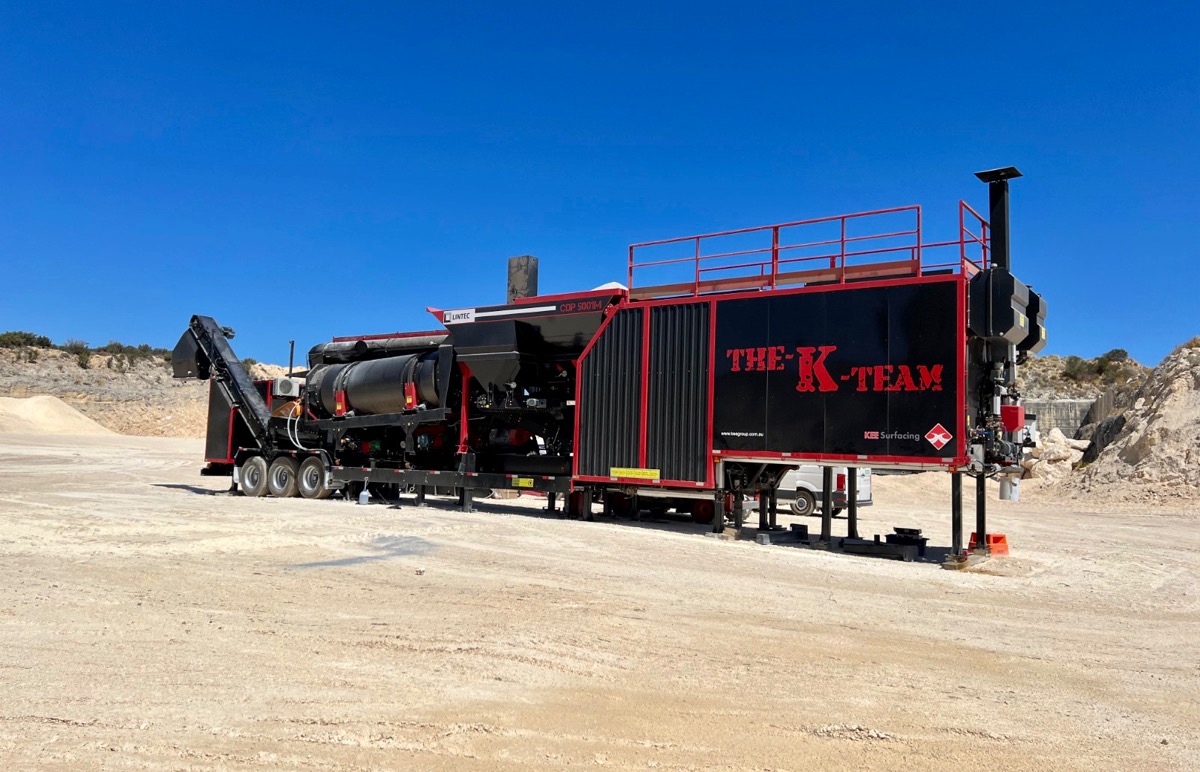
What are the Current Trends for Asphalt Plants?
“For such a vast country like Australia, the mobile asphalt plant has become a game changer,” says KEE Surfacing’s Production Manager Anthony Serpo. “No longer do we have to transport asphalt over long distances from a fixed plant to a construction site. This was a hugely time-consuming task and can be an extremely expensive process, especially when you considers the enormity of Western Australia.”
Asphalt plants are used for the production of hot mix asphalt (HMA) and are an essential component of the construction industry. Mobile asphalt plants, also known as portable asphalt plants, have gained popularity in recent years due to their ability to be easily transported and set up at job sites.
KEE Surfacing is proud to announce that the division has stepped into a new arena and has acquired two mobile asphalt plants to expand its capabilities in the road surfacing business. Our K Team asphalt plant has finally been released and is ready for deployment. Anthony Serpo joined KEE to drive this new division. With over twenty years in the industry, we know The K Team will be in safe hands.
The first of our mobile plants ready for action is a Lintec CDP5001M asphalt plant. This one-trailer unit has the capability to produce up to 50 tonnes per hour. The bonus with this unit is that the entire asphalt plant can be set-up and operational within hours.
KEE, of course, could not stop at one plant. The surfacing division purchased a second plant, a Ciber iNOVA 1502. This plant has the most advanced technology for the production of asphalt mixtures and it combines the production capacity of up to 150 t/h in two mobilities. The plant has six cold feed bins, a RAP bin that can add up to 25% recycled material, a fibre bin (which gives the option to produce SMA) and an oxide bin to incorporate coloured oxide into laterite and granite mixes.
Environmentally friendly features
Many mobile asphalt plants now come equipped with features that reduce emissions and minimize their impact on the environment. These features may include the use of recycled materials, exhaust gas treatment systems, and dust control measures.
Advanced automation
Automation technology has advanced significantly in recent years, and many mobile asphalt plants now incorporate sophisticated computer systems that control the production process and monitor plant performance. These systems can help to improve efficiency, reduce waste, and enhance safety.
Increased production capacity
With advances in technology, mobile asphalt plants can now produce larger volumes of HMA in a shorter amount of time. This can be particularly beneficial for contractors working on large-scale projects with tight timelines.
Modular design
Many mobile asphalt plants are now designed with modular components that can be easily transported and assembled on site. This can make it easier to set up and dismantle the plant, as well as to move it from one job site to another.
Integration with telematics
Some mobile asphalt plant manufacturers are integrating telematics technology into their equipment, allowing contractors to track plant performance, monitor fuel consumption, and manage maintenance schedules remotely.
The trend in mobile asphalt plants in Australia and beyond is towards greater efficiency, flexibility, and environmental sustainability, driven by advances in technology and a growing awareness of the need to reduce the impact of construction activities on the environment.
Photo credit: Anthony Serpo


